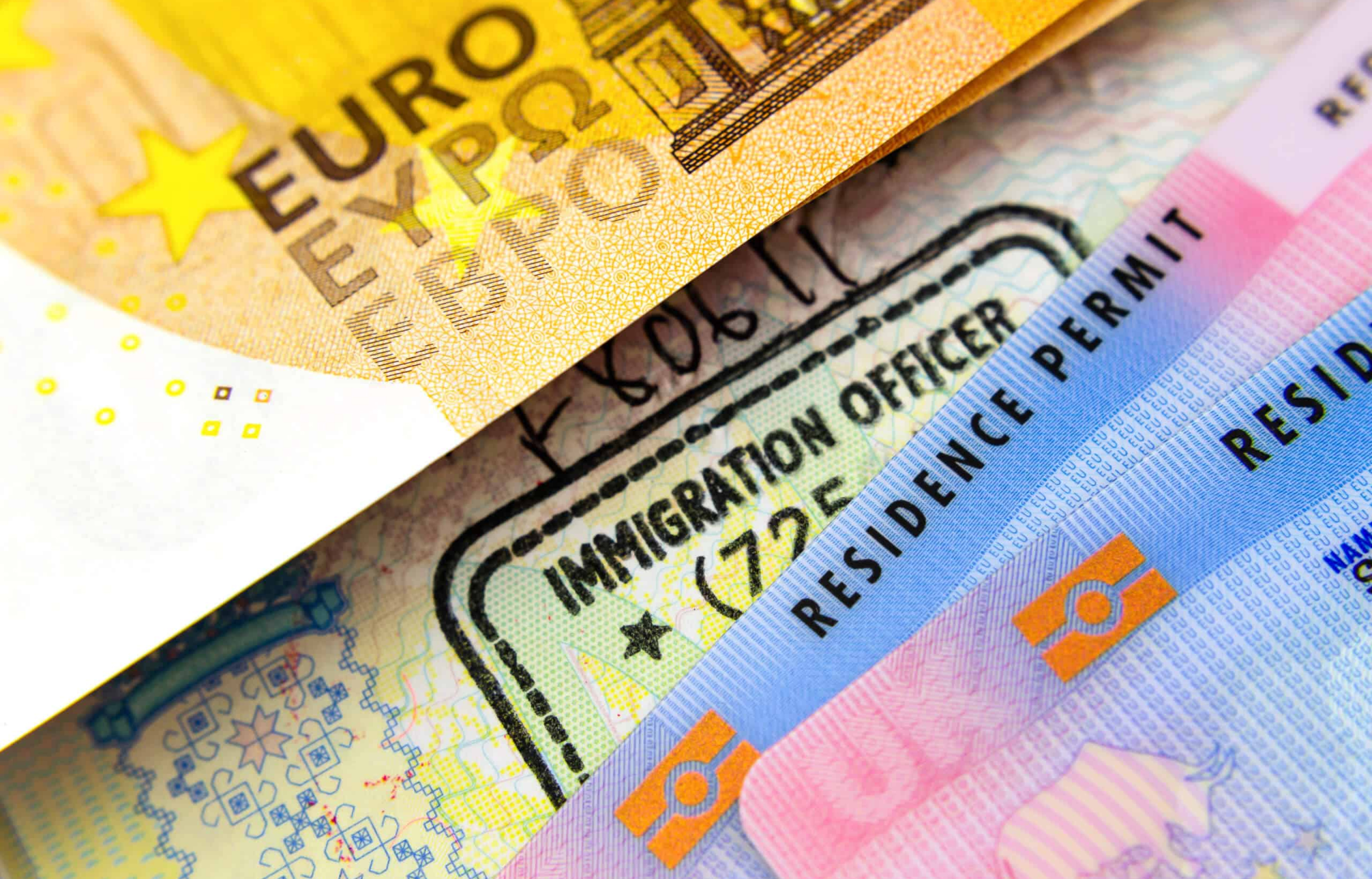
Turkey offers numerous benefits and opportunities for entrepreneurs seeking to establish a company in Turkey and expand their businesses internationally. For some, Turkey is a step towards opening up to the global market. For others, Turkey is valuable in the sense that it offers equal opportunities and rights for locals and non-locals, and many incentives, especially for international trade and IT sectors, manufacturing, and investment opportunities for obtaining citizenship.
Why Choose Turkey for Company Establishment?
Turkey offers a strategic and secure environment for entrepreneurs looking to establish a company in Turkey. With its unique position connecting Europe, Asia, and the Middle East, Turkey serves as a dynamic business hub that fosters trade, investment, and economic growth. The country maintains a stable political framework and prioritizes neutrality and international cooperation, ensuring a business-friendly climate for both local and foreign investors. As a gateway to multiple markets, Turkey continues to attract businesses across various industries, providing equal opportunities and government incentives that make it an ideal destination for company formation and expansion.

Types of Companies You Can Establish in Turkey
There are two main types of companies based on their structure in Turkey:
- Limited Liability Company (LLC) – Minimum capital: 50.000 TL (must be deposited to the company bank account within 24 months following the establishment.
- Joint-Stock Company (JSC) – Minimum capital: 250.000 TL (62.500 TL must be deposited at the registration day, the remaining amount can be deposited within 24 months following company establishment.
Companies can also be categorized into three types based on their shareholder structure:
- Standalone Company: A joint-stock or limited liability company with shareholders who are all natural persons.
- Subsidiary: A company where one or more shareholders are other companies. A subsidiary is an independent legal entity separate from its parent company.
- Branch Office: Unlike a subsidiary, a branch is an extension of the parent company and not an independent entity. For example, if X Company opens a branch in Turkey, X is fully responsible for the branch’s debts and actions. A branch has no shareholders and does not require capital. However, it requires one Turkish manager and one representative from the parent company, both of whom are liable for the branch’s operations.
Legal Requirements for Company Formation in Turkey
A limited liability company is the simplest and most recommended structure for most entrepreneurs. It can function as a standalone company or as a subsidiary of a foreign company.
Documents Required for an LLC or a JSC:
- Notarized passport translations of the shareholders and managers.
- Power of attorney for company establishment (required only for remote establishment).
- Potential tax numbers for each shareholder and manager.
- A joint-stock company is similar to an LLC but with one additional requirement: Minimum capital of 250,000 TL, with one-fourth temporarily blocked in a bank account during registration.
Documents Required for a Subsidiary or Branch Office:
In addition to the documents given above, some documents from the parent company are needed. These documents must be ratified by the Turkish Consulate in the home country, or, if the country is part of the Hague Convention, they can be signed at a notary and attached with an Apostille from the relevant government authority. A key consideration is that the Chamber of Commerce in Turkey only accepts documents in the Turkish language. However, not all translations are acceptable. If you choose to translate your documents into Turkish, the translations must be approved by a sworn translator at a Turkish Consulate, or they can be translated directly by a sworn translator at the Consulate. A consulate’s registered translators and their contact information can typically be found in the Consulate’s website.
Post-Establishment Requirements:
Two documents must be signed by the company director and delivered within 15 days:
- Signature Circular (to be signed at a Turkish Consulate).
- Power of Attorney for Public Accounting (to be signed at a Turkish Consulate, or, if the country is part of the Hague Convention, it can be signed at a notary public, attached with an Apostille from the relevant authority, and delivered to the certified public accountant.
These documents are needed by the certified public accountant to register the newly established company in the online system of the Revenue Administration. If the registration is not done within the legal time period, the company receives a government penalty. Therefore, it is crucial to sign and deliver these two documents to the public accountant within 15 days.
- The registered capital must be deposited to the company’s bank account within 24 months following the establishment. This is not a blocked amount and can be utilized for company expenses. However, it is advisable to deposit it as soon as possible to help activate your account promptly and establish a positive relationship with the bank.
- After the company’s establishment and signing of the necessary documents, it is important to work closely with your public accountant to stay compliant and benefit from tax reductions and get financial consulting.
Step-by-Step Process to Establish a Company in Turkey
A crucial step is to determine the business type, capital, name and activities. Choosing the right business structure, whether it will be a standalone LLC or a JSC or a subsidiary is important.
When should you choose a JSC?
- If the business requires venture capital, angel investors, or public offering, a JSC is more suitable.
- An LLC cannot go public, whereas a JSC can list shares on the stock market.
- In an LLC, share transfers require approval from other shareholders, whereas in a JSC, shares can be sold freely.
- JSCs have a more structured corporate governance system with a Board of Directors, making them ideal for complex businesses.
- A JSC is often perceived as more reliable and stable, which is beneficial for large contracts, partnerships, and government tenders.
- Monthly public accounting costs are higher compared to LLCs.
- A JSC is ideal for large-scale businesses, investment-heavy industries, and companies planning to raise capital through share issuance. If a business is smaller, family-run, or does not require external investors, an LLC is often the more practical and cost-effective choice.
- For certain industries, such as mining or cryptocurrency, establishing a JSC may be a legal requirement.
When should you choose an LLC?
- A Limited Liability Company (Ltd. Şti.) has a simpler structure compared to a JSC, making it more manageable for smaller businesses.
- Unlike JSCs, LLCs cannot issue shares or go public.
- Share transfers require notarization and approval from other shareholders, ensuring control remains within the company.
- Financial audits are not mandatory unless the company meets certain financial thresholds.
- This reduces compliance and administrative costs compared to JSCs.
- Monthly public accounting costs are also lower compared to JSCs.
When should you choose a subsidiary or branch office?
Establishing a branch or subsidiary is more costly and complex than setting up a standalone LLC due to additional document requirements (e.g., apostilled and translated documents). However, subsidiaries and branches provide better profit transfer options and access to Double Taxation Avoidance Agreements (DTAA).
A major advantage of subsidiaries and branches is their ability to facilitate profit transfers internationally. For example:
- If a Turkish company’s profits are transferred to a parent company abroad, a DTAA may prevent double taxation.
- Establishing a subsidiary or branch allows companies to use methods such as royalties or management fees for transferring profits efficiently.
- Subsidiaries and branches offer better long-term profitability despite higher initial costs and complexity.
After choosing the company type and structure and delivering the necessary documentation, the next step is to prepare your articles of association. The AOA is typically prepared by a certified public accountant based on the information you give them. This document includes details such as the company title, activities, capital, managers and shareholders.
Once ready and confirmed by the company managers, the AOA is then submitted to the chamber of commerce system and an appointment is made. On the day of the appointment, if the shareholders are there, they can attend the appointment and sign the articles of association. If they are not present, the power of attorney holder signs on their behalf. This process typically takes 15 minutes. Once the company is registered, the company certificates are issued within 24 hours.
For certain sectors, such as tourism, real estate or cryptocurrency, a license from the relevant authorities may be required. However, these are not requested during the registration stage. They can be obtained after the registration of your company by applying to the relevant authorities.
It is crucial to get the right guidance during the registration process to determine whether you really need a license or not. For example, for tourism companies, a TÜRMOB license is required from the Ministry of Culture and Tourism. However, if you register a tourism consulting company, you would not need this license, and you may be able to operate without any issues, depending on your business model. The same applies to real estate companies. Normally, it is required to hire a local person who holds the real estate qualification license. However, if you register a real estate consulting company, you would not need this license. Experts can help you make sure that you register the right type of company for your business model.
Cost of Setting Up a Company in Turkey
Establishing a company in Turkey is fairly straightforward and affordable if you do thorough research or get expert guidance. First of all, having a legal address is required. You may not need a physical office in the beginning stages. A virtual office may be a cost-effective way to start your business. Virtual offices are typically rented for a year and your membership can be renewed every year. They may also offer additional services such as coworking spaces or mail delivery services.
Other cost items include company establishment fees that are paid to the Chamber of Commerce and to the certified public accountant, sworn translator fee (since it is required in government authorities), document translation fees, notary fees and making the company stamp. After setting up your company, maintenance costs include the public accounting cost and physical/virtual office expenses.
Taxation System in Turkey
To stay compliant with the laws and regulations in Turkey, it is important to know the taxation system and how it works. Having a certified public accountant (CPA) is mandatory for every business. A CPA is typically responsible for tasks such as:
- Monthly VAT declaration
- Monthly withholding tax declaration
- Monthly BA-BS declaration
- Quarterly advance tax declaration
- Annual corporate tax declaration
- Foreign taxpayer’s annual declaration
- Bookkeeping
- Taxation law consulting
Taxes in Turkey:
Corporate Income Tax:
- 25%, paid quarterly on profit.
- For exporters, income tax is reduced to 20%.
- For exporters of IT and related services, it is further reduced to only 5%.
VAT: Typically 20% for most sectors. For services given or products sold outside of Turkey, VAT is not applicable.
Fixed Taxes (Stamp Duty and similar): Amount to approximately 400 USD in total in a year.
Dividend Withholding Tax: 15%. Nonresidents receiving dividend income from Turkish entities may face 15% withholding tax if there is no relevant Double Tax Treaty between Turkiye and the dividend recipient’s country that provides a dividend withholding tax rate lower than 15%. Considering most of the Double Tax Treaties with Turkiye provide a lower dividend withholding tax rate when compared to local rate (15%), it would be crucial for nonresidents deriving dividend income from Turkish entities to meet the requirements to be eligible to benefit from the relevant Double Tax Treaty.
Foreign Investors: How to Start a Business in Turkey
Turkish citizens, residents, and non-residents all have the same rights in terms of business. Citizens of any country in the world can start their business in Turkey, open a branch, or establish a company in Turkey. The most crucial point is to get your passport translated into Turkish if you do not have a Turkish resident card or ID, and get it notarized. Another important requirement is to obtain a potential tax number, which can be obtained online if you visit or have visited Turkey at any point, or if you give someone a power of attorney for them to obtain it on your behalf. Obtaining a potential tax number does not make you liable for tax in itself. Once you meet these requirements, you will be recognized by the authorities in Turkey.
Government Incentives: Turkish residents and non-residents have equal rights to benefit from the incentives if they meet the criteria.
Turkey is currently a growing hub for tech and IT sectors and is trying to attract ‘’Unicorns’’ and all kinds of qualified technology firms, consultants, specialists and engineers. For these reasons, there are some huge incentives for related sectors:
Income Tax:
- Reduced to only 5% for exporting IT/Software services.
- The government will reimburse 50% of the Apple Store commission (which is 15%), with a maximum yearly revenue cap of $1M USD. This means you can receive up to $75,000 USD back in commission payments annually.
- The government will reimburse 60% of advertisement costs for software companies that have been operational in Turkey for at least one year.
Teknopark
A teknopark (technopark or technology park) is a designated area where technology-focused businesses, research institutions, and startups come together to innovate, develop new technologies, and collaborate. These parks aim to foster research and development (R&D), innovation, and entrepreneurship by providing an ecosystem tailored for technology companies.
Key Features of a Teknopark:
R&D Incentives and Tax Benefits: Companies operating in teknoparks benefit from significant tax exemptions, such as:
- No corporate tax on income generated from R&D activities.
- Exemption from value-added tax (VAT) for technology and software development.
- Reduced income tax for employees involved in R&D projects.
Collaboration Opportunities: Teknoparks often facilitate partnerships between businesses, universities, and research centers. They help bridge the gap between academia and industry to turn innovative ideas into marketable products.
Startups and Entrepreneurship: They provide resources for startups, such as coworking spaces, mentoring, funding opportunities, and business development services.
Infrastructure: Equipped with modern facilities such as laboratories, offices, testing centers, and high-speed internet to support R&D and innovation.
Government Support: Most teknoparks are supported by the government to promote technological advancement and economic growth in the region.
Teknoparks in Turkey:
Turkey has many teknoparks associated with universities, providing a connection between academia and industry. Examples include:
- ODTÜ Teknokent (Middle East Technical University): One of the largest and most prominent teknoparks in Turkey.
- İTÜ ARI Teknokent (Istanbul Technical University): Focused on fostering innovation and entrepreneurship in Istanbul.
- Teknopark Istanbul: Known for its focus on defense, aerospace, and other high-tech sectors.
Free Zones in Turkey:
A free zone in Turkey, known as a “serbest bölge” in Turkish, is a specially designated area where companies enjoy a variety of incentives and tax advantages to encourage export-oriented production and international trade. These zones operate under different rules from the rest of the country, making them attractive to businesses involved in manufacturing, logistics, and trade.
Benefits of Free Zones for Businesses:
- Reduced operating costs and tax liabilities.
- Easier access to international markets.
- Flexibility in foreign currency usage.
- Ideal for businesses involved in global trade, especially manufacturing and export-driven operations.
Free Zone Expenses:
- License: 5,000 USD (this fee is refunded by the government in case the application is not accepted)
- Average rent for 50 m2 office: 50 USD / month
- Loading / unloading: 8 USD / tone
- Warehouse rent for 20’’ container: 200 USD / day
- %100 income tax and VAT exception
Regulations:
- Activities in free zones are regulated by the Free Zones Law No. 3218 and overseen by Turkey’s Ministry of Trade.
- Businesses need to obtain an Operating License to establish in a free zone.
Examples of Major Free Zones in Turkey:
- Mersin Free Zone: One of Turkey’s first free zones, focused on manufacturing and trade near the Mediterranean coast.
- Ege Free Zone (Izmir): Known for attracting companies in the electronics, textile, and machinery sectors.
- Istanbul Atatürk Airport Free Zone: Specialized in logistics and trade due to its proximity to Istanbul’s major airport.
- Antalya Free Zone: Focused on yacht manufacturing and tourism-related industries.
Young Entrepreneur Support
he Young Entrepreneur Support is a program that provides tax advantages to entrepreneurs under the age of 29. Foreign individuals can benefit from Young Entrepreneur advantages as long as they have a residence permit or work permit in Turkey. After they establish a company in Turkey, young entrepreneurs apply for support through the interactive/digital tax office. The approval is submitted to the Social Security Institution (SGK). In 2025, young entrepreneurs do not pay Bağ-Kur premiums for 12 months. The monthly Bağ-Kur premium is currently 9.036,91 TL. The tax support provided under the young entrepreneurship program lasts for 3 calendar years. During this period, young entrepreneurs do not pay income tax up to 330.000 TL in 2025.
Challenges You May Face When Establishing a Company
For both foreigners and local entrepreneurs, establishing a company in Turkey is fairly straightforward, and Turkey continues its efforts to further simplify and digitalize the process. However, there continue to be some issues faced by foreigners.
Making sure the company registration application is made correctly is crucial, more so if the company will be a branch or subsidiary. The documents of the shareholders must be translated into Turkish in a Turkish Consulate, or, notarized abroad and attached with an Apostille and translated into Turkish in Turkey & notarized again. Turkey does not recognize documents that are notarized abroad without Apostille or Turkish Consulate ratification. Aside from the language, the document formats must be prepared with expert guidance to avoid any mistakes when you establish a company in Turkey.
Another crucial point is the bank account. Opening the bank account is perhaps the most crucial step after taking the necessary steps to establish a company in Turkey. This is especially important for joint-stock companies, since the rule is to block 1/4th of the company capital in a temporary bank account before registering the company. After the capital is blocked, a letter from the bank is taken to the chamber of commerce to fully register the company, and with the issuance of company certificates, the bank account can be fully opened. For this process, finding a bank to accept the application may be very difficult. For different reasons, the banks may reject opening accounts for both locals and foreigners. It is crucial to work with expert guidance and make sure the bank account application is done correctly. KYC information requested by the banks must be provided by the applicant comprehensively and correctly.
Another challenge around the banks is that most banks in Turkey require the foreign shareholders to have a residence or work permit in Turkey to open their corporate accounts. Not having either of these can make it difficult for the company owners to open an account, especially in private banks. If the shareholders open an account at a bank, they may still want to explore opportunities with other banks and have more than one account. In such cases, it is advisable for the company shareholder(s) to apply for a work permit. Having a work permit or citizenship simplifies the process of opening a bank account and makes it more likely that your application will be accepted. However, if you do not intend to get a work permit, you do not have to worry. With expert guidance, you can avoid most of these challenges and smoothly open your bank account after you establish a company in Turkey.
In addition to the bank account, obtaining a local phone number can be very difficult. Normally, foreigners can only obtain temporary sim cards, valid for 3 months. Turkish telephone service providers require foreigners to have a residence permit, work permit, or citizenship to give permanent sim cards. This may sometimes create problems at the banks, as some banks require a local phone number. The easiest solution is to give a trusted agent a power of attorney to obtain a permanent local phone number on your behalf. Another option is to set up a landline if you prefer a formal number for your business, especially if you plan to establish a company in Turkey. This number can direct calls to any mobile phone of your choice.
Although Turkish people are very open and welcoming towards foreigners, language and cultural differences can make it difficult to establish a company in Turkey and operate your business. Some regulations and rules and the attitude of the government officials may seem unusual to foreigners. Working with experienced, English-speaking consultants can help ease this process and help you adapt.
Top Industries for Business in Turkey
Turkey’s top industries include automotive, textiles, agriculture, tourism, and construction, all of which have shown consistent growth due to Turkey’s skilled labor force, strong production capacity, and export-oriented economy. Additionally, the technology and renewable energy sectors are rapidly emerging as key markets, fueled by government incentives and increasing demand for innovation, making it an attractive destination to establish a company in Turkey.
Opportunities also abound in the healthcare and pharmaceuticals industries, with Turkey becoming a prominent destination for medical tourism and manufacturing. Furthermore, Turkey’s vast potential in e-commerce is capturing the attention of global investors, driven by its young population and high internet penetration. Free zones, teknoparks, and strategic trade agreements enhance Turkey’s position as a competitive destination for foreign direct investment (FDI), particularly for businesses aiming to establish a company in Turkey and access Europe, the Middle East, and Central Asia. Entrepreneurs and companies seeking to tap into these markets will find Turkey an ideal gateway for growth and expansion, especially if you are planning to manage the company from outside of Turkey. Having the right guidance can help you save a lot of time and money.
How Professional Services Can Help in Company Formation
Having expert guidance is necessary not only for overcoming language and cultural barriers but also for choosing the right structure and strategy to establish a company in Turkey. Points such as location, physical vs. virtual office renting, management and shareholder structure, the bank and branch you will work with, and profit repatriation must be taken into consideration before registering your company. Even after registration, you may need assistance with matters such as recruitment or work permit applications. Working with the right people is crucial, especially if you are planning to manage the company from outside of Turkey. Having the right guidance can help you save a lot of time and money.
Doing business in Turkey does not have to be difficult. With the right guidance, your business can not only survive but thrive. Contact us for affordable and simple solutions to launch your business. By exploring our Company Registration Package, you can set up your real company in Turkey seamlessly and with confidence.
Yes, foreigners can fully own a company in Turkey without requiring a local partner. Turkey offers equal rights to both residents and non-residents for company ownership, making it an attractive destination for international entrepreneurs.
The company registration process typically takes 3 to 7 business days, depending on document preparation and approvals. Working with an expert can help speed up the process and avoid common delays.
Turkey offers several tax incentives, including reduced corporate income tax for exporters (as low as 5% for IT services), VAT exemptions for international sales, and special tax benefits for businesses in teknoparks and free zones.
No, a virtual office is sufficient for company registration, helping reduce costs while meeting legal requirements. However, certain industries, such as manufacturing and retail, may require a physical space.
Yes, but many banks require foreign company owners to have a residence or work permit. With expert assistance, it is possible to open a business bank account without residency, but requirements vary between banks.























